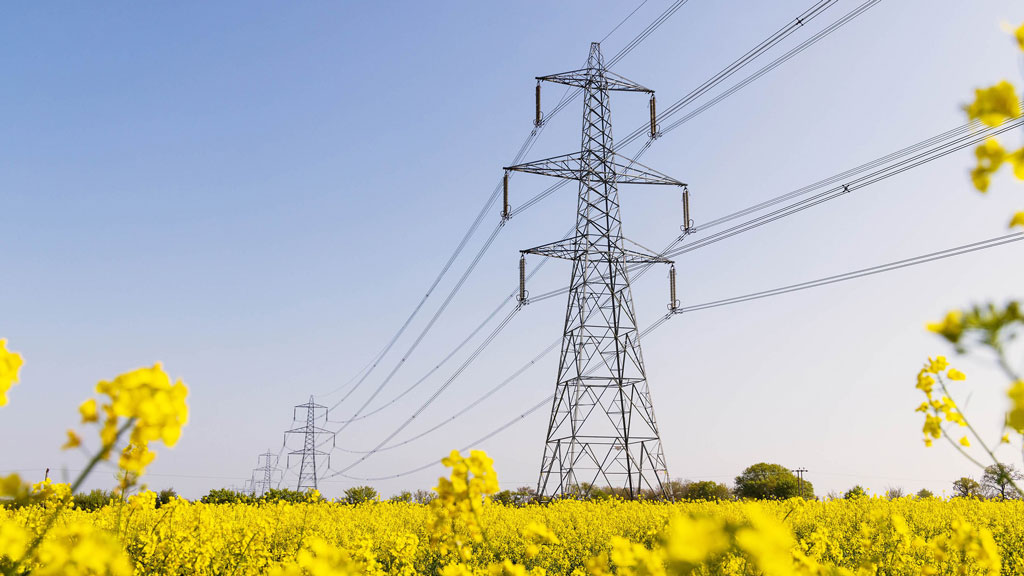The Canadian and global energy sectors are currently battling three shocks: security, society and climate, said Marie-France Gravelle, GHD’s future energy lead for Canada.
SHOCKED: De-risking the energy transition in an era of profound uncertainty, was released June 1 by global professional services firm GHD. Over 450 senior energy sector decision-makers from around the globe were polled. It’s one of the largest research studies ever undertaken on the topic.
“The objective was basically to take a temperature check on how the energy sector is faring in this energy crisis that we’re in,” explained Gravelle.
Security refers to extreme market volatility and geopolitical tensions. There is also societal pressure on the energy sector to provide reliable, affordable and low-carbon energy.
The climate crisis also continues to force the acceleration of energy transition but progress towards net-zero is being impacted by a number of factors.
According to the research, 94 per cent of energy leaders believe the current energy crisis is the most severe their market has ever experienced.
The study found it has developed over the last few years and has severely depleted capital flows into energy projects. It also found investment levels between 2020 and 2022 were an estimated US$203 billion lower than expected under normal market conditions, according to energy sector CFOs.
Seventy-one per cent of respondents in Canada said security of energy supply is the number one concern for their organization. The global average was 75 per cent.
“If we think about the security shock…energy companies are facing a lot of pressures with respect to things like energy supply,” said Gravelle.
“One thing that came out is that energy companies that are supplying energy to the market would be able to supply energy for only 70 days if they were cut off from imports.
“You need a good balance between being able to supply your own energy but also having to rely on imports, so that is a big risk to energy companies.”
In terms of the impact on society, the research highlights community opposition to renewable energy projects, or a lack of social acceptance, is limiting progress.
Sixty-six per cent of the Canadian leaders in the study identified community opposition as one of the largest obstacles to getting new projects approved.
“They also found that educating communities on the need for the energy transition is also really a key priority for them,” added Gravelle.
While many companies and governments are trying to get to net-zero by 2050, the warming planet, geopolitical tensions and global energy security concerns threaten to derail efforts, the report states.
Forty-two per cent say the current energy crisis has accelerated their organization’s net-zero plans by an average of five years. Almost half (47 per cent) report the crisis has decelerated their net-zero plans by an average of six years.
“While many companies’ net-zero strategies have been set back, most of the industry feels a shared commitment to achieving net-zero between 2040 and 2050,” Gravelle said.
“With so much uncertainty in the energy sector, one thing that is clear is the need for transition and to keep net-zero strategies on track.”
Governments and communities around the world need to collectively work together to address the challenges, Gravelle added.
“The message we were trying to get across is that yes, we’re facing a global energy crisis and there are a lot of different shocks to it but there’s also hope,” she noted.
The report identified five priorities that will help to de-risk the energy transition and help leaders understand what they need to do to move forward.
“Unlocking money in markets, looking at how we can supercharge engineered solutions, looking at balancing supply chains and resources, securing community understanding and social acceptance and also ensuring a just transition,” Gravelle explained.
Unlocking money and markets is about taking steps to get the money into projects.
“Getting that capital, the investment, whether it’s from prime equity or from governments, how can we unlock that money to be able to get into those projects?” said Gravelle.
“Some of the ways is to make smart planning, getting the right permits in place, making sure that the government has good policies and regulations that will attract investors to develop those projects faster. That’s the way that we can address those risks and attract investors but also at the same time looking at research and development. There is still a lot to do from a technology perspective to be able to develop all the projects that are needed to get to net-zero.”
The study also found:
- Nearly three-quarters of global energy leaders (74 per cent) believe energy prices are currently the biggest contributor to inflation, and 76 per cent say the energy crisis is reducing the standard of living across the globe.
- Renewable energy will be the central component in the sector’s response to the climate crisis as almost all the leaders (99 per cent) have a strategy in place to increase their renewable energy mix.
- For the most part, investment in renewables has continued or accelerated despite the crisis with 16 per cent of Canadian leaders saying the global energy crisis has had no impact on their organization’s investment in renewables, and 68 per cent saying it has accelerated their investment.
Follow the author on Twitter @DCN_Angela




Recent Comments
comments for this post are closed